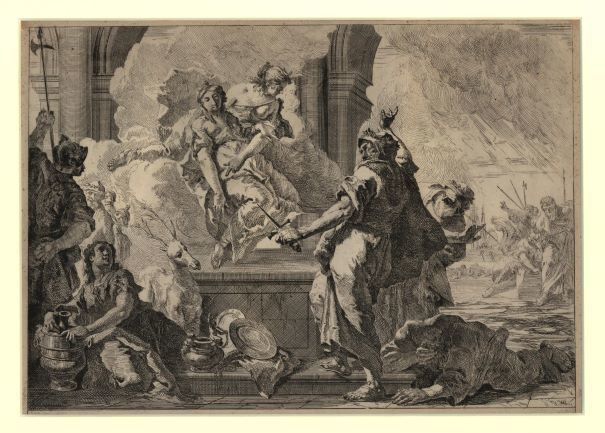December 2022: Classical Tragedy and the World of Ideas
Please join us in December 2022 for a Virtual Reading Group with Aeon Skoble.

Pre-registration is required, and we ask you to register only if you can be present for ALL sessions. Most readings are available online; one book must be purchased. Participants who successfully complete ALL sessions will be eligible to receive an Amazon e-gift certificate.
What can tragic dramas from the ancient world have to teach us today?
Join us to explore classic works by Sophocles and Aeschylus to explore the individual and philosophical implications of the tragic choices they portray.
Session I: Thursday, December 1, 4-5 EST: Understanding classical tragedy
In this first session we’ll consider Aristotle’s analysis of the formal elements of tragic drama, and we’ll look at Sophocles’ Oedipus Rex, Aristotle’s go-to example. We will see whether and to what extent Oedipus Rex achieves its intended effects, and why. The events of Oedipus Rex also set the context for Session II.
Aristotle, Poetics
Sophocles, Oedipus Rex
Session II: Thursday, December 8, 4-5 EST: Sophocles’ Antigone
In this session we’ll consider the ideas that go into making this story tragic. The conflict between Antigone and King Creon is one of the earliest literary treatments of what would later be known as civil disobedience themes. Arguably, both Antigone and Creon are tragic figures. We will discuss both characters’ motivations and the larger philosophical implications of their choices.
Sophocles, Antigone
Session III: Thursday December 15, 4-5 EST: Aeschylus’ Oresteia
In this session we will discuss the context and motivations of several killings by various characters, and what aspects of these plays qualify as tragic. We will consider contrasting views of justice and vengeance as illustrated in the trilogy, as well as what it proposes as a solution to a perennial social problem. We will also discuss ways in which the apparent takeaway contrasts with that of Antigone.
Aeschylus, Agamemnon, The Libation Bearers, and Eumenides